October 10, 2014
Is workplace management now a core capability for knowledge businesses?
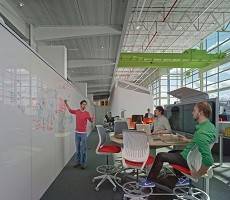 That’s the key question for delegates coming to this year’s Workplace Week Convention at PWC’s More London office on the 6th November. Entitled ‘The Work/place revolution….taking human performance to new levels’ the convention aims to explore what organisations need to do to get ‘personal best’ performance from every worker on the payroll.For years, the management of Facilities has been viewed by many leaders as ‘non core’, but recent research by AWA (Advanced Workplace Associates),the organisers of Workplace Week, suggests that this may no longer be true for knowledge based businesses. ‘It’s becoming clear that the way the workplace is designed and managed can have a really dramatic impact on the performance of knowledge workers in ways that have not previously considered. Knowledge workers think for a living it’s critical that everything is created to give them the best chance of delivering a great performance.
That’s the key question for delegates coming to this year’s Workplace Week Convention at PWC’s More London office on the 6th November. Entitled ‘The Work/place revolution….taking human performance to new levels’ the convention aims to explore what organisations need to do to get ‘personal best’ performance from every worker on the payroll.For years, the management of Facilities has been viewed by many leaders as ‘non core’, but recent research by AWA (Advanced Workplace Associates),the organisers of Workplace Week, suggests that this may no longer be true for knowledge based businesses. ‘It’s becoming clear that the way the workplace is designed and managed can have a really dramatic impact on the performance of knowledge workers in ways that have not previously considered. Knowledge workers think for a living it’s critical that everything is created to give them the best chance of delivering a great performance.





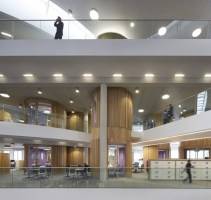
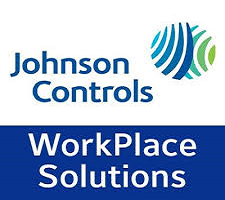
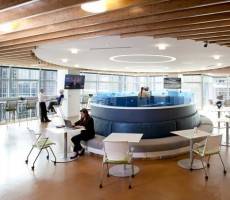



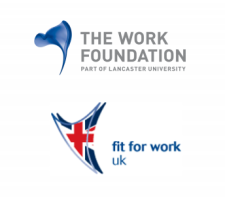











October 21, 2014
Orgatec preview: the next generation workplace is all about settings
by Justin Miller • Comment, Events, Products, Workplace design
There is a well travelled international circuit for those interested in what office design tells us about the way we work that has, for a number of years, taken in London, Milan, Chicago, Stockholm and Cologne as its main stopping off points. This week sees the launch of Orgatec, the longstanding biennial workplace festival in Cologne. One of the interesting features of Orgatec is that, because it takes place every two years, it offers snapshots of key developments in the market. It throws a spotlight on whatever workplace professionals are talking about and whatever product designers are doing in response to the changing world of work. And it does it on a big scale. This year over 600 companies from 40 countries will be presenting across an exhibition area of 105,000 sq. m. This seems big, and is, but is down markedly on the size of the show from 20 years ago when Orgatec was the launch pad for seminal products such as Herman Miller’s Aeron Chair and the Ad Hoc furniture system from Vitra.
(more…)